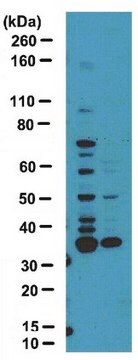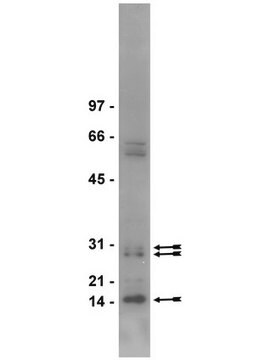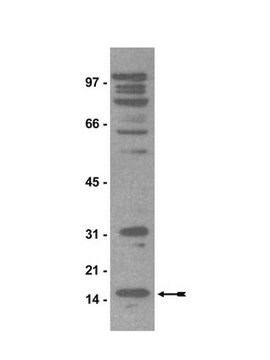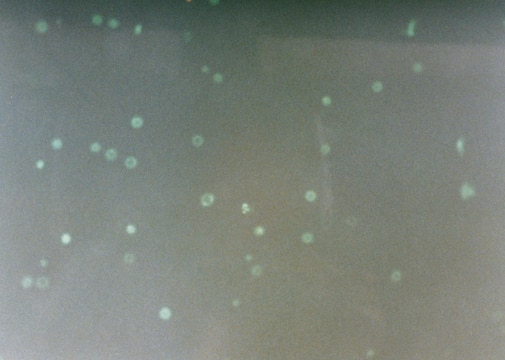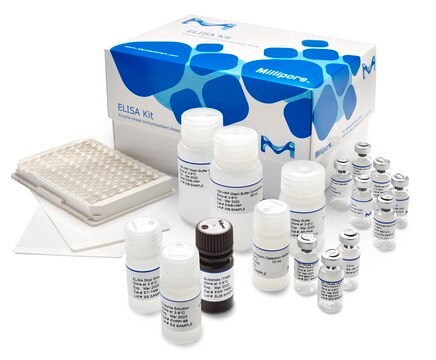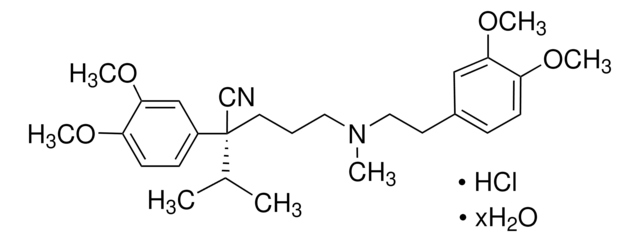07-414
Anti-dimethyl-Arginine Antibody, asymmetric (ASYM24)
serum, Upstate®
Sinónimos:
Dimethyl-Arginine Antibody
About This Item
Productos recomendados
origen biológico
rabbit
Nivel de calidad
forma del anticuerpo
serum
tipo de anticuerpo
primary antibodies
clon
polyclonal
reactividad de especies
human, mouse
fabricante / nombre comercial
Upstate®
técnicas
western blot: suitable
isotipo
IgG
Condiciones de envío
wet ice
modificación del objetivo postraduccional
unmodified
Descripción general
Especificidad
Inmunógeno
Aplicación
Calidad
Western Blot Analysis:
A 1:500-1:1000 dilution of this lot detected p110, p75, and Sam68 in RIPA lysates from Jurkat cells.
Descripción de destino
Forma física
Almacenamiento y estabilidad
Handling Recommendations: Upon receipt, and prior to removing the cap, centrifuge the vial and gently mix the solution. Aliquot into microcentrifuge tubes and store at -20°C.
Avoid repeated freeze/thaw cycles, which may damage IgG and affect product performance. Note: Variability in freezer temperatures below -20°C may cause glycerol containing solutions to become frozen during storage.
Nota de análisis
Positive Antigen Control: Catalog #12-303, Jurkat cell lysate.
Otras notas
Información legal
¿No encuentra el producto adecuado?
Pruebe nuestro Herramienta de selección de productos.
Código de clase de almacenamiento
12 - Non Combustible Liquids
Clase de riesgo para el agua (WGK)
WGK 2
Punto de inflamabilidad (°F)
Not applicable
Punto de inflamabilidad (°C)
Not applicable
Certificados de análisis (COA)
Busque Certificados de análisis (COA) introduciendo el número de lote del producto. Los números de lote se encuentran en la etiqueta del producto después de las palabras «Lot» o «Batch»
¿Ya tiene este producto?
Encuentre la documentación para los productos que ha comprado recientemente en la Biblioteca de documentos.
Nuestro equipo de científicos tiene experiencia en todas las áreas de investigación: Ciencias de la vida, Ciencia de los materiales, Síntesis química, Cromatografía, Analítica y muchas otras.
Póngase en contacto con el Servicio técnico